Toxic Free Talk Radio Archives
The Dangers of Antimicrobials and How to Choose Products Without Them
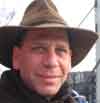 My guest today is Larry Plesent, Founder of Vermont Soap. We’re going to talk about why you shouldn’t use toxic antimicrobials, which products contain them and where you can find antimicrobial-free alternatives, and some toxic free ways to kill germs. Vermont Soap makes “100% natural and non-toxic alternatives to the chemical based personal care products now in general use, including; handmade bar soaps for sensitive skin, anti-aging products, 100% natural shower gels, castile liquid soaps and non-toxic cleaners. Most products made by Vermont Soap are certified to USDA organic standards.” Larry is also a writer,philosopher, restaurateur and farmer. www.debralynndadd.com/debras-list/vermont-soap
My guest today is Larry Plesent, Founder of Vermont Soap. We’re going to talk about why you shouldn’t use toxic antimicrobials, which products contain them and where you can find antimicrobial-free alternatives, and some toxic free ways to kill germs. Vermont Soap makes “100% natural and non-toxic alternatives to the chemical based personal care products now in general use, including; handmade bar soaps for sensitive skin, anti-aging products, 100% natural shower gels, castile liquid soaps and non-toxic cleaners. Most products made by Vermont Soap are certified to USDA organic standards.” Larry is also a writer,philosopher, restaurateur and farmer. www.debralynndadd.com/debras-list/vermont-soap
Choosing Cosmetics Without Synthetics
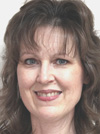 Today my guest is Marj Melchiors, Founder of Cosmetics Without Synthetics. We’ll be talking about what she’s learned about dangerous and safe cosmetics in more than fifteen years of choosing and creating cosmetics. After a professional career for 13 years as an interior designer, Marj Melchiors founded her natural cosmetics company as a mail order business in 1997, to meet the needs of others who were seeking cosmetics without synthetics. Two years later her company went online. Today her site sells all kinds of cosmetic products (and more) that are fragrance-free, 70% or more organic, vegan, gluten-free, carmine-free, and, of course, synthetic-free. Long before the current craze for mineral makeup, Marj developed her Earth’s Beauty® line based on arrowroot, to meet the demand of customers wanting even lesser ingredients in makeup than what was being offered in the natural cosmetics realm in the late 1990’s. Marj has many years experience evaluating and creating cosmetic products. www.allnaturalcosmetics.com and www.earthsbeauty.com
Today my guest is Marj Melchiors, Founder of Cosmetics Without Synthetics. We’ll be talking about what she’s learned about dangerous and safe cosmetics in more than fifteen years of choosing and creating cosmetics. After a professional career for 13 years as an interior designer, Marj Melchiors founded her natural cosmetics company as a mail order business in 1997, to meet the needs of others who were seeking cosmetics without synthetics. Two years later her company went online. Today her site sells all kinds of cosmetic products (and more) that are fragrance-free, 70% or more organic, vegan, gluten-free, carmine-free, and, of course, synthetic-free. Long before the current craze for mineral makeup, Marj developed her Earth’s Beauty® line based on arrowroot, to meet the demand of customers wanting even lesser ingredients in makeup than what was being offered in the natural cosmetics realm in the late 1990’s. Marj has many years experience evaluating and creating cosmetic products. www.allnaturalcosmetics.com and www.earthsbeauty.com
How to Determine Your Risk of Harm From an Exposure to a Toxic Chemical
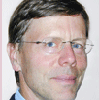 Toxicologist Steven G. Gilbert, PhD, DABT, a regular guest who is helping us understand the toxicity of common chemicals we may be frequently exposed to. Dr. Gilbert is Director and Founder of the Institute of Neurotoxicology and author of A Small Dose of Toxicology- The Health Effects of Common Chemicals.
Toxicologist Steven G. Gilbert, PhD, DABT, a regular guest who is helping us understand the toxicity of common chemicals we may be frequently exposed to. Dr. Gilbert is Director and Founder of the Institute of Neurotoxicology and author of A Small Dose of Toxicology- The Health Effects of Common Chemicals.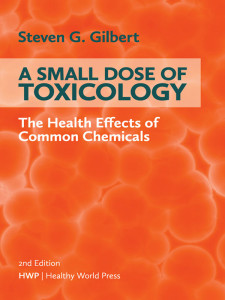 He received his Ph.D. in Toxicology in 1986 from the University of Rochester, Rochester, NY, is a Diplomat of American Board of Toxicology, and an Affiliate Professor in the Department of Environmental and Occupational Health Sciences, University of Washington. His research has focused on neurobehavioral effects of low-level exposure to lead and mercury on the developing nervous system. Dr. Gilbert has an extensive website about toxicology called Toxipedia, which includes a suite of sites that put scientific information in the context of history, society, and culture. www.toxipedia.org
He received his Ph.D. in Toxicology in 1986 from the University of Rochester, Rochester, NY, is a Diplomat of American Board of Toxicology, and an Affiliate Professor in the Department of Environmental and Occupational Health Sciences, University of Washington. His research has focused on neurobehavioral effects of low-level exposure to lead and mercury on the developing nervous system. Dr. Gilbert has an extensive website about toxicology called Toxipedia, which includes a suite of sites that put scientific information in the context of history, society, and culture. www.toxipedia.org
How Recycling and Buying Recycled Products Helps Reduce Toxics
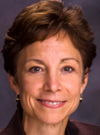 My guest today is Brenda Pulley,Senior Vice President, Recycling, for Keep America Beautiful. Brenda joined Keep America Beautiful in October 2010 to develop, execute, and expand America Recycles Day, an annual event that is happening this Friday, November 15. Keep America Beautiful is collaborating on this campaign with the Ad Council—the nation’s largest producer of public service advertising. Brenda also supports other recycling programs and connects with Washington-based stakeholders. In this role, she identifies and develops strategies for policy issues key to Keep America Beautiful, its mission and members. Brenda began her nearly 30-year career working for the U.S. House of Representatives Energy and Environmental Small Business Committee. In addition to her work on Capitol Hill, she has also worked for both corporations and trade associations. Brenda also serves on the Board of Directors of R2 Solutions – the organization charged with promoting environmentally responsible practices throughout the electronics recycling industry. www.americarecyclesday.org and www.kab.org
My guest today is Brenda Pulley,Senior Vice President, Recycling, for Keep America Beautiful. Brenda joined Keep America Beautiful in October 2010 to develop, execute, and expand America Recycles Day, an annual event that is happening this Friday, November 15. Keep America Beautiful is collaborating on this campaign with the Ad Council—the nation’s largest producer of public service advertising. Brenda also supports other recycling programs and connects with Washington-based stakeholders. In this role, she identifies and develops strategies for policy issues key to Keep America Beautiful, its mission and members. Brenda began her nearly 30-year career working for the U.S. House of Representatives Energy and Environmental Small Business Committee. In addition to her work on Capitol Hill, she has also worked for both corporations and trade associations. Brenda also serves on the Board of Directors of R2 Solutions – the organization charged with promoting environmentally responsible practices throughout the electronics recycling industry. www.americarecyclesday.org and www.kab.org
Birth Control the Natural Way
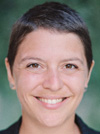 My guest today is Hannah Ransom, founder of Holistic Hormonal Health. We’ll be talking about a method of natural birth control called the sympto-thermal method of fertility awareness that Hannah teaches online. Hannah is passionate about letting women know that they don’t need to resort to toxic birth control, even if they want a highly effective method. She writes about many things related to fertility awareness on her website. holistichormonalhealth.com
My guest today is Hannah Ransom, founder of Holistic Hormonal Health. We’ll be talking about a method of natural birth control called the sympto-thermal method of fertility awareness that Hannah teaches online. Hannah is passionate about letting women know that they don’t need to resort to toxic birth control, even if they want a highly effective method. She writes about many things related to fertility awareness on her website. holistichormonalhealth.com
All About BioPlastics
 Today my guest is Brenda Platt, Director of the Sustainable Plastics Initiative, Co-Chair of the Sustainable Biomaterials Collaborative, and co-director of the nonprofit Institute for Local Self-Reliance, based in Washington, DC. She has worked 26 years on waste reduction, recycling and composting issues. Today we are talking about complostable bioplastics, made from renewable resources instead of fossil fuels. Brenda is the author of several groundbreaking reports including Beyond 40 Percent: Record-Setting Recycling and Composting Programs and the U.S. EPA’s Cutting the Waste Stream in Half. Her 2000 report for the GrassRoots Recycling Network, Wasting and Recycling in the United States 2000, includes a 10-page zero waste agenda for action. Her 2003 report, Resources up in Flames outlined the economic pitfalls of incineration versus a zero waste approach. Her report, Stop Trashing the Climate, documents that aiming for zero waste is one of the fastest, cheapest, and most effective strategies available for combating climate change. She currently directs ILSR’s Composting Makes $en$e project and Sustainable Plastics project and co-chairs the Sustainable Biomaterials Collaborative, a coalition spurring the use of biobased products that are sustainable from cradle to cradle. The Collaborative has developed environmentally sustainability criteria for biobased plastics, and recently released purchasing specs for biobased compostable food service ware. www.sustainablebiomaterials.org
Today my guest is Brenda Platt, Director of the Sustainable Plastics Initiative, Co-Chair of the Sustainable Biomaterials Collaborative, and co-director of the nonprofit Institute for Local Self-Reliance, based in Washington, DC. She has worked 26 years on waste reduction, recycling and composting issues. Today we are talking about complostable bioplastics, made from renewable resources instead of fossil fuels. Brenda is the author of several groundbreaking reports including Beyond 40 Percent: Record-Setting Recycling and Composting Programs and the U.S. EPA’s Cutting the Waste Stream in Half. Her 2000 report for the GrassRoots Recycling Network, Wasting and Recycling in the United States 2000, includes a 10-page zero waste agenda for action. Her 2003 report, Resources up in Flames outlined the economic pitfalls of incineration versus a zero waste approach. Her report, Stop Trashing the Climate, documents that aiming for zero waste is one of the fastest, cheapest, and most effective strategies available for combating climate change. She currently directs ILSR’s Composting Makes $en$e project and Sustainable Plastics project and co-chairs the Sustainable Biomaterials Collaborative, a coalition spurring the use of biobased products that are sustainable from cradle to cradle. The Collaborative has developed environmentally sustainability criteria for biobased plastics, and recently released purchasing specs for biobased compostable food service ware. www.sustainablebiomaterials.org
Proper Disposal of Pharmaceuticals
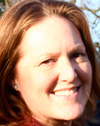 My guest today is Heidi Sanborn, Executive Director of the California Product Stewardship Council, a powerful network of local governments, non-gocernment organizations, businesses and individuals who believe “people should be able to enjoy safer products made without the harmful and toxic components which jeopardize the safety and health of our children, families, and communities.” Today we’ll be talking about how pharmaceutical collection sites can safeguard the environment and our water supply, and help prevent drug abuse by children and teens. Heidi has been a leader in the solid waste industry in California for 22 years, working with industry, government and the public to reduce waste, improve product design and recyclability, and implement cost-effective policies which protect the health of communities. Collaborating with local government leaders, Heidi was one of two original co-directors of CPSC in 2007 to change the way product waste is funded and managed in California; she has since become a nationally recognized thought leader and driver for innovative product stewardship programs across the country. Heidi’s collaborative, tenacious problem-solving approach has delivered unprecedented success in developing Extended Producer Responsibility (EPR) public policy at national, state and local levels. She has engaged diverse stakeholder groups to create and promote best-in-class product stewardship programs for pharmaceuticals, mercury thermostats, carpets, paint, fluorescent lights, and batteries. Heidi speaks throughout the world to raise awareness about product stewardship. She teaches about EPR for the California Resources Recovery Association, and has been frequently published on the topic. Heidi earned a B.A. in Political Science – Public Service from the University of California at Davis and a Master of Public Administration from the University of Southern California. She lives in Sacramento with her husband Brad and three rescue dogs and enjoys adventure travel. www.calpsc.org/products/pharmaceuticals
My guest today is Heidi Sanborn, Executive Director of the California Product Stewardship Council, a powerful network of local governments, non-gocernment organizations, businesses and individuals who believe “people should be able to enjoy safer products made without the harmful and toxic components which jeopardize the safety and health of our children, families, and communities.” Today we’ll be talking about how pharmaceutical collection sites can safeguard the environment and our water supply, and help prevent drug abuse by children and teens. Heidi has been a leader in the solid waste industry in California for 22 years, working with industry, government and the public to reduce waste, improve product design and recyclability, and implement cost-effective policies which protect the health of communities. Collaborating with local government leaders, Heidi was one of two original co-directors of CPSC in 2007 to change the way product waste is funded and managed in California; she has since become a nationally recognized thought leader and driver for innovative product stewardship programs across the country. Heidi’s collaborative, tenacious problem-solving approach has delivered unprecedented success in developing Extended Producer Responsibility (EPR) public policy at national, state and local levels. She has engaged diverse stakeholder groups to create and promote best-in-class product stewardship programs for pharmaceuticals, mercury thermostats, carpets, paint, fluorescent lights, and batteries. Heidi speaks throughout the world to raise awareness about product stewardship. She teaches about EPR for the California Resources Recovery Association, and has been frequently published on the topic. Heidi earned a B.A. in Political Science – Public Service from the University of California at Davis and a Master of Public Administration from the University of Southern California. She lives in Sacramento with her husband Brad and three rescue dogs and enjoys adventure travel. www.calpsc.org/products/pharmaceuticals
Our Toxic World and Why We Need to Do Something
My guest today is Catherine J. Frompovich, author of Our Chemical Lives and the Hijacking of Our DNA. This book is so full of information on toxic chemicals and their health effects, I can hardly describe it. While I usually talk about solutions, today we’re going to be talking about the problem, so you can understand WHY we need to protect ourselves. As a result of her lifelong interest in nature and the natural way, Catherine J. Frompovich enrolled in holistic modalities and natural nutrition. During her studies that led to advanced degrees in Nutrition and Holistic Health Sciences and a Certification in Orthomolecular Theory and Practice, she came to realize how important it is to follow the “owner’s manual” that comes with the human body – Nature’s intended way of life, living, and healthcare. She spent numerous years in practice as a consulting nutritionist and has written many books. In the late 1970s and early 1980s, her books were used by teachers in elementary schools to teach nutrition, a subject – and lifestyle – that she feels truly is imperative in maintaining one’s health from its prenatal stage and throughout life. During the 1980s, she had a cooking show on cable TV, devoted to the natural way of preparing food. For five years, she was the editor of The Healthcare Rights Advocate, a 32 page quarterly newsletter centered on the politics of healthcare in the 1980s. In the 1990s she represented alternative healthcare interests on Capitol Hill, Washington, DC. Now that she’s a widow and retired, she devotes her time to writing books; consults with aspiring writers to get their works into publication, and helps in the design phase of authors’ books. Catherine also continues her several decades-long research in consumer health and its care, plus the politics of healthcare issues. Her work is published online. www.catherinejfrompovich.com
Compact Fluorescent Lights May Save Energy but Can Harm Your Health
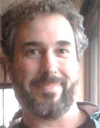 My guest today is Paul Wheaton, who is well-known in Permaculture circles. I invited him to be a guest on the show because he wrote a great article about why we shouldn’t use compact fluorescent bulbs, even though they are being heavily promoted by environmentalists to save energy. Paul believes, as I do, that we shouldn’t do something toxic to achieve some other goal, but rather find a solution that supports the entire ecosystem, including the humans. So today we’re going to talk about how CFL’s can harm your health and what else you can do to save energy that is toxic-free. www.richsoil.com/CFL-fluorescent-light-bulbs.jsp#CFL-bulb-toxicity
My guest today is Paul Wheaton, who is well-known in Permaculture circles. I invited him to be a guest on the show because he wrote a great article about why we shouldn’t use compact fluorescent bulbs, even though they are being heavily promoted by environmentalists to save energy. Paul believes, as I do, that we shouldn’t do something toxic to achieve some other goal, but rather find a solution that supports the entire ecosystem, including the humans. So today we’re going to talk about how CFL’s can harm your health and what else you can do to save energy that is toxic-free. www.richsoil.com/CFL-fluorescent-light-bulbs.jsp#CFL-bulb-toxicity
How to Protect Your Body From Your Cell Phone
My guests today are Dr. Ryan McCaughey and Dr. Rong Wang from Pong Research, I use Pong cases on my cell phone and ipad to block harmful radiation. We’ll be talking about the health effects of radiation from cell phone and how you can protect your body. www.debralynndadd.com/debras-list/pong-research.
 Dr. McCaughey is the Chief Technology Officer for the company. He leads the technical team that designs and tests the Pong technology. He has a Ph.D. in Physics from the University of Manchester (UK) for his thesis on Laser Stimulation of Nerves. He also received a Masters in Physics with Technological Physics from the University of Manchester. Dr. McCaughey grew up in Northern Ireland, before moving to the United States in 2007 for a research position at the Beckman Laser Institute, University of California, Irvine, where he researched laser surgery of the bones in the ear. In 2009, Dr. McCaughey joined the International Foundation for Science, Health and the Environment (IFSHE) in Los Angeles, where he worked on development of a plasma centrifuge for isotope separation and the genesis of the technology that became the foundation for Pong Research Corporation.
Dr. McCaughey is the Chief Technology Officer for the company. He leads the technical team that designs and tests the Pong technology. He has a Ph.D. in Physics from the University of Manchester (UK) for his thesis on Laser Stimulation of Nerves. He also received a Masters in Physics with Technological Physics from the University of Manchester. Dr. McCaughey grew up in Northern Ireland, before moving to the United States in 2007 for a research position at the Beckman Laser Institute, University of California, Irvine, where he researched laser surgery of the bones in the ear. In 2009, Dr. McCaughey joined the International Foundation for Science, Health and the Environment (IFSHE) in Los Angeles, where he worked on development of a plasma centrifuge for isotope separation and the genesis of the technology that became the foundation for Pong Research Corporation.
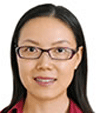
Dr. Rong Wang joined Pong in 2011 as Chief Science Officer. She is responsible for the oversight and scientific integrity of all research, published content, and documentation related to the biological effects of non-ionizing radiation emitted from cellular and Wi-Fi devices (including cellular phones, tablets, laptops, routers, and Bluetooth accessories). Rong reports directly to the CEO as lead technical writer, editor, and media representative on all scientific issues related to mobile health, wellness, and environmental topics that pertain to Pong’s technology. As a co-inventor of Pong’s internationally patented technology, Rong also continues to participate in product research and development and helps identify and qualify new technologies and applications for the company.
Rong received her Ph.D. in Nuclear Engineering from the Massachusetts Institute of Technology, including a joint degree from Harvard in Health Sciences and Technology. She is a specialist in radiation biology, and her doctoral dissertation focused upon human cellular responses to radiation. She also earned two bachelor’s degrees in Physics Engineering and Economics from Tsinghua University in China.
Prior to Pong, Rong is originally from the Sichuan Province of China.



